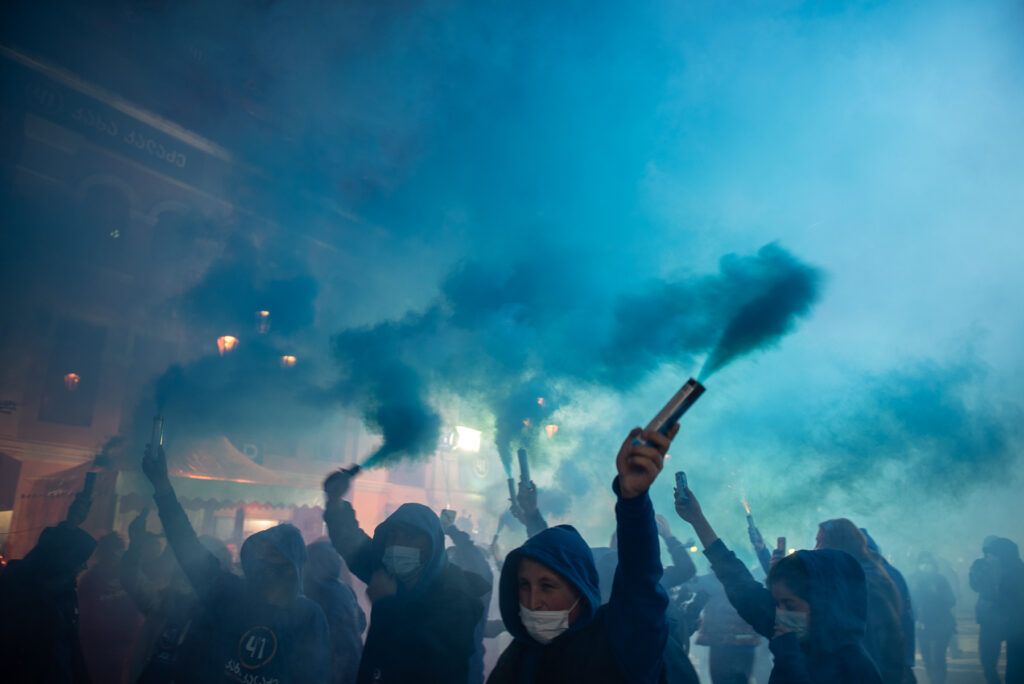With the votes counted from 99% of polling stations, the ruling Georgian Dream party is leading in local elections with 47% of the proportional vote nationwide.
This puts them over the symbolic 43% threshold widely seen as a measure of their rule.
An April agreement signed by, and then rejected by, Georgian Dream promised early parliamentary elections next year if the ruling party failed to win 43% of the popular vote. Despite Georgian Dream’s U-turn on the agreement, the opposition have maintained that the election was a referendum on whether to hold new elections.
The United National Movement (UNM) is in second nationwide, with 31%, followed by former Prime Minister Giorgi Gakharia’s For Georgia party on 8%.
Polls closed at 20:00 on Saturday for the election of municipal councils (sakrebulo) and mayors of 73 municipalities and five self-governing cities across the country.
Despite Georgian Dream looking set to secure a resounding victory nationwide, the party has faced challenges in major population centres. All five self-governing cities are set to go to run offs between the UNM and Georgian Dream.
In Kutaisi and Batumi, the UNM mayoral candidates — Khatia Dekanoidze and Giorgi Kirtadze — currently maintain narrow leads. Georgian Dream lead in Poti and Rustavi.
In the capital Tbilisi, incumbent mayor Kakha Kaladze, the general secretary of Georgian Dream, leads UNM chair Nika Melia by 45% to 34%.
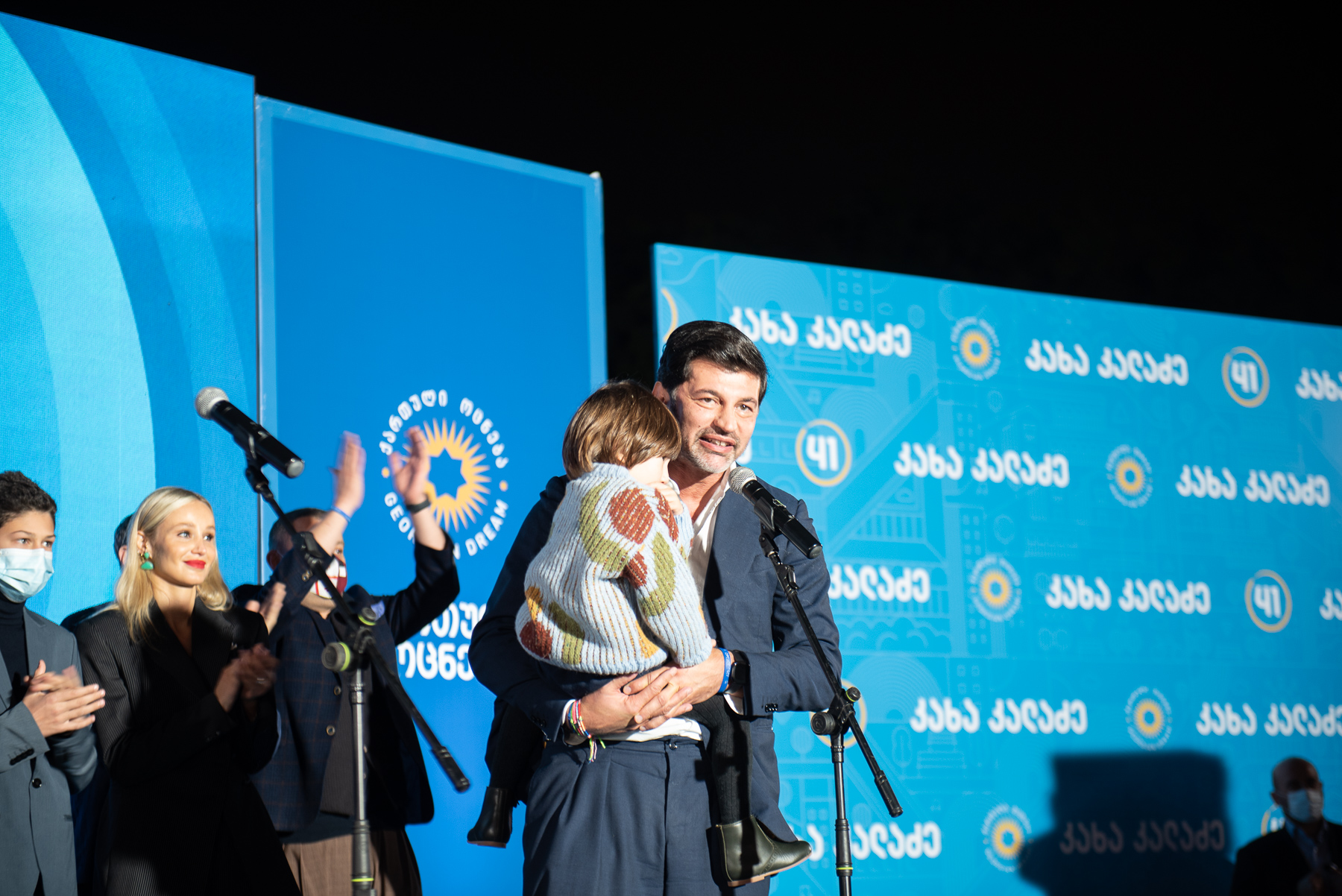
‘Of course, it’s especially regrettable for us that reruns will be needed in Tbilisi, but obviously, we have no doubt that Kakha Kaladze will have the final win in this election’, Georgian Dream Chair Irakli Kobakhidze stated on Sunday.
Georgian Dream looks set to win the mayoral elections outright in 44 municipalities, with the remaining 15 set to go to a run-off.
While Georgian Dream candidates lead in most of these, the UNM have come out on top in Zugdidi, where party leader Nika Melia’s father, Anzor Melia, leads his Georgian Dream rival by 47% to 41% and in Tsalenjikha, where the UNM candidate is leading by 41% to 37%.
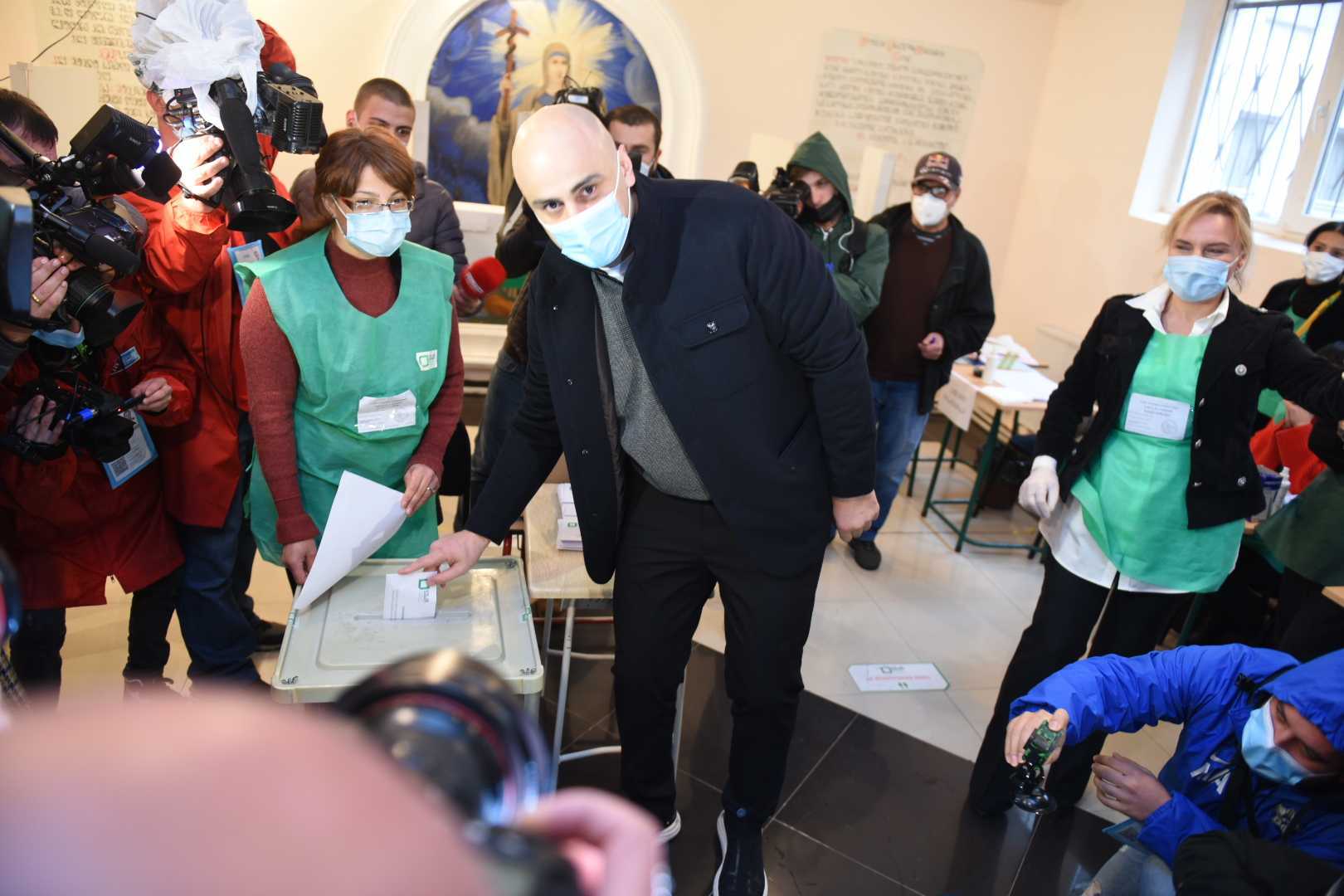
The vote was somewhat overshadowed by the dramatic return from exile and subsequent arrest of former President Mikheil Saakashvili the night before the vote. Saakashvili has been convicted in absentia on several counts of abuse of power in Georgia.
[Read more: Saakashvili arrested in Georgia on eve of election]
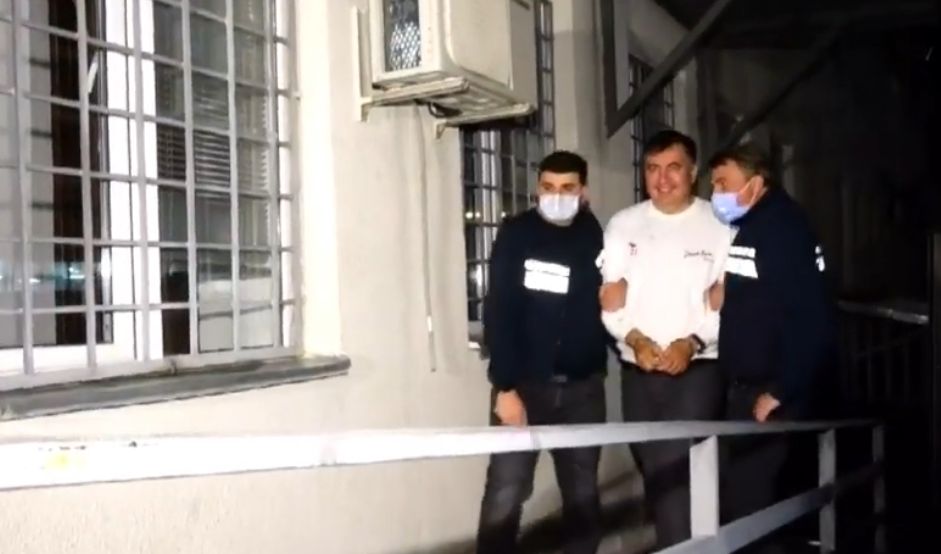
The election comes following a series of scandals in Georgia that have hurt the ruling party and have sent the country’s relationships with the West to its lowest point in years.
Speaking to journalists in Marneuli, southern Georgia, earlier on Saturday, US Ambassador to Georgia Kelly Degnan said that America was watching the vote closely.
‘I’ve been getting a lot of requests from […] my colleagues in Washington, including at the State Department, at the White House, in Congress, they’re following this closely as well’, she said.
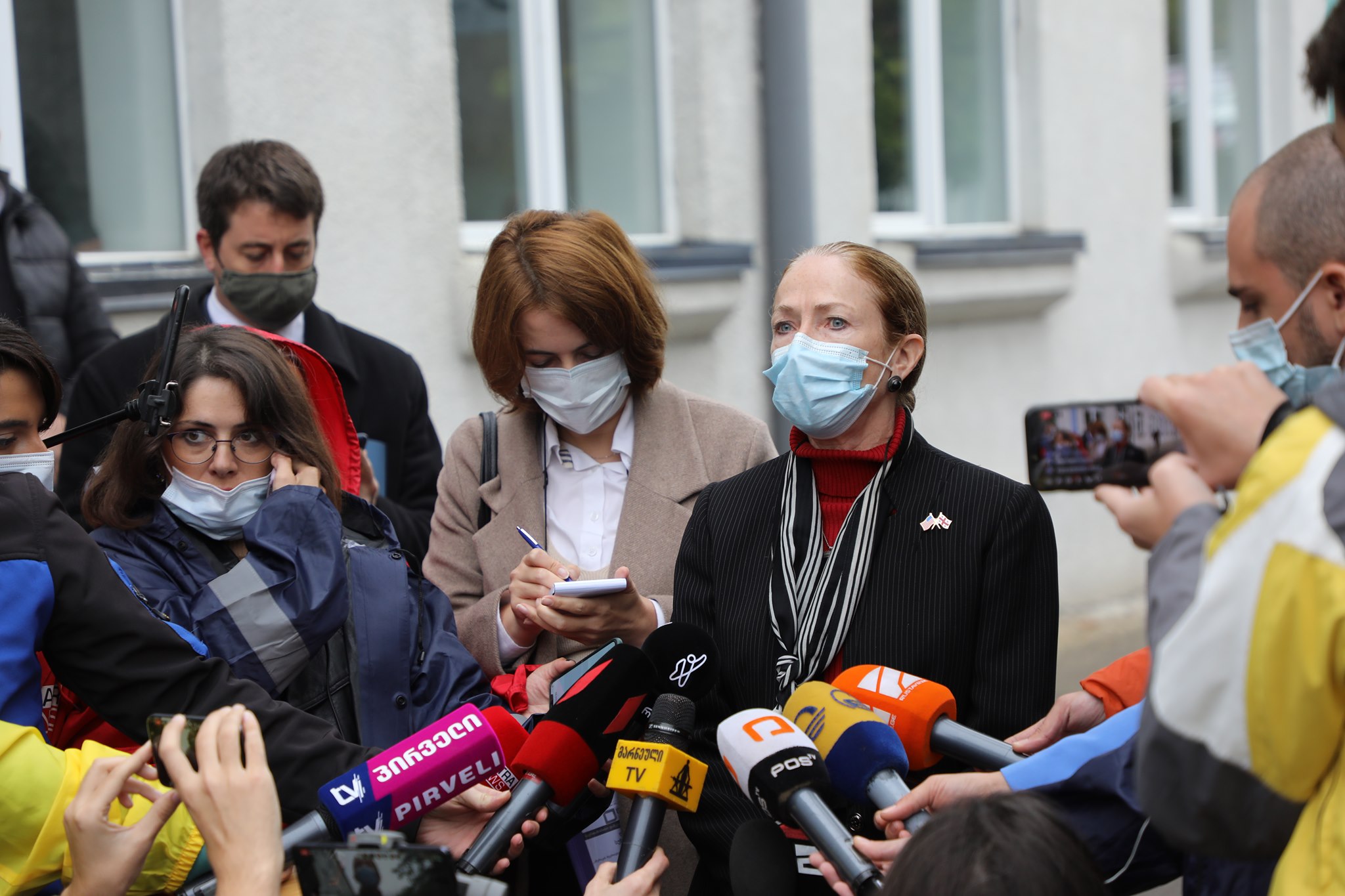
Preliminary figures put the turnout at 52%, up from 46% during the previous municipal elections in 2017. During October 2020’s parliamentary elections, turnout was 56%.
The Central Election Commission (CEC) reported that 1,024 registered observers from 52 international missions were present, with the largest representation from the OSCE/ODIHR mission.
Violations reported
The poll saw a number of electoral violations taking place.
The OSCE/Council of Europe/EU observation mission stated on Sunday that while the elections were competitive and generally well-administered the vote was ‘marred by wide-spread and consistent allegations of intimidation, vote-buying, pressure on candidates and voters, and an unlevel playing field.’
This, they concluded, raised concerns ‘about voters’ ability to cast their vote “free of fear of retribution”, at odds with OSCE commitments and international standards.’
Local watchdog group Transparency International Georgia stated on Sunday that the pre-electoral environment and election day ‘demonstrated that the government still lacks the political will to hold elections in line with high-level democratic standards’.
In the morning, the Speaker of the Georgian Parliament, Kakha Kuchava, voted in while wearing a protective mask with the Georgian Dream party logo and the party electoral number, 41, written on it. CEC Spokesperson Natia Ioseliani later confirmed that this was a violation of the electoral code, which forbids campaigning on election day.
The issue of party activists, particularly from the ruling party, congregating around polling stations and noting down lists of voters remained an issue. This was despite new rules aiming to curb voter intimidation forbidding people from gathering within 100 metres of polling stations.
The International Society for Fair Elections (ISFED) reported ‘suspicious gatherings’ within 100 metres of 20% of polling stations as well as people keeping track of voters outside 13% of polling stations.
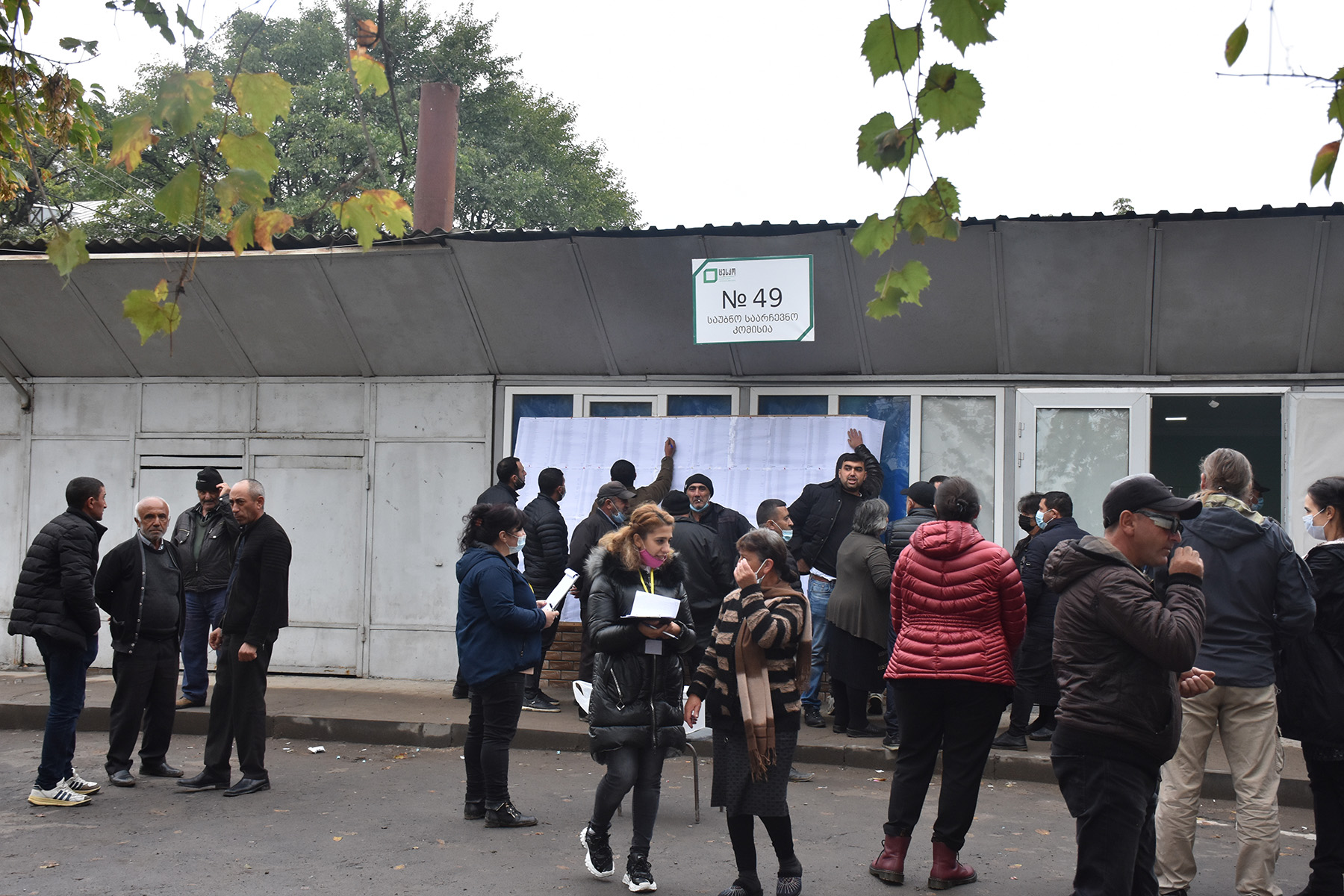
Several Georgian Dream activists also attacked journalists when challenged on this behaviour, including in the city of Batumi, where a member of the ruling party allegedly stole the broadcasting equipment from a TV Pirveli camera crew.
In addition to attacks on journalists, there were several isolated incidents of violence. This included an incident in a village near Marneuli where a Labour Party member was stabbed, allegedly by a member of Georgian Dream.
There were also several reports of vote-buying and carousel voting, in which groups of people are brought to several polling stations to vote multiple times.
After the polls closed, Rob Farbman, Executive President of Edison Research, told TV channel Formula that they had faced obstacles while conducting exit polls from the electoral authorities and in some instances, from party members throughout the day.
Among the most serious violations, Transparency International Georgia reported suspected carousel voting at the 13th polling station in the southern Georgian municipality of Marneuli, a case of vote-buying at 1st polling precinct of Dusheti Municipality, five cases of obstructing or pressuring an observer, and four cases of violation of voter secrecy in polling stations.
On Sunday, the Interior Ministry reported that 16 criminal cases had been launched over the electoral violations nationally.




 3 October 2021
3 October 2021
